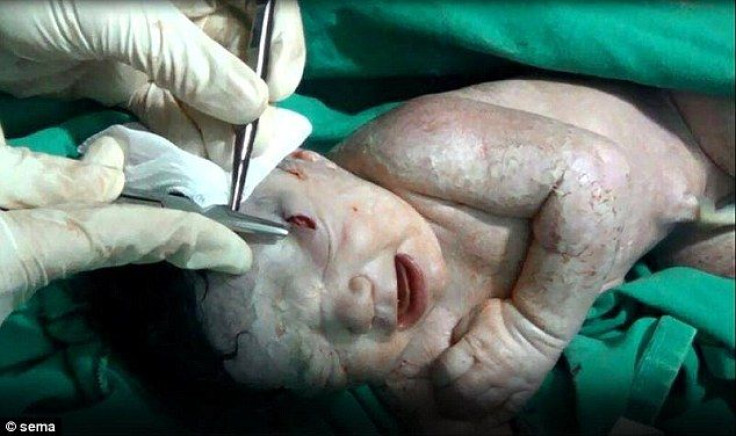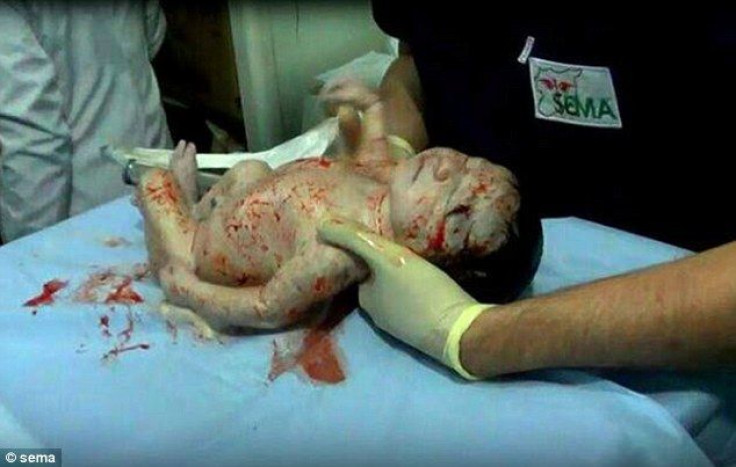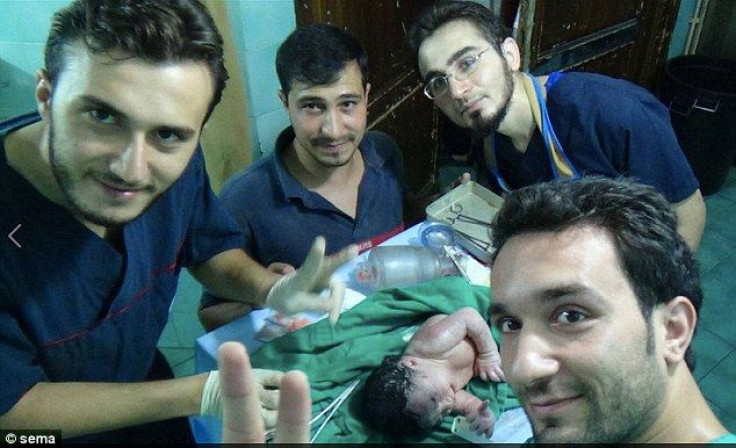War In Syria: Pregnant Woman And Baby Survive Shrapnel Wounds, Thanks To Emergency C-Section

Syrian doctors were able to save a pregnant woman and her baby after arriving at a local hospital with shrapnel wounds, CNN reported.
The woman, named Amira, was with three of her children in Aleppo — the country’s capital city most torn by its 5-year-long civil war — when a missle strike allegedly launched by government forces hit their home. Amira’s children didn’t sustain any many injuries, but she suffered shrapnel wounds on her face and body. She was nine months pregnant at the time of the attack.
Amira and her family rushed to the hospital, where she arrived looking “sad and confused,” Mashfa al Midani Hospital spokesman Abu Louie told CNN. "She was surrounded by her three wounded kids, (and) she was bleeding from several parts of her body including her belly," he said.
Doctors acted quickly to conduct an emergency C-section only to find that the baby had a piece of shrapnel lodged in her forehead, just above her left eye. Luckily, doctors were able to remove it and Amira and her newborn Amel, which is Arabic for “hope,” are reportedly recovering well.
"We don't know if the baby girl saved her mother from this shrapnel or the mother saved her baby" a doctor told CNN, "but we all know that the devilish regime tried to kill them both."


The Syrian Expatriate Medical Association posted pictures to its Facebook, writing that, “ In Syria, even the fetus in the womb of his mother was not spared from the bombing of warplanes.”
SEMA explained that the hospital Amira and Amel were taken to is one of “the largest and oldest field hospitals” in the country. Yet, CNN found that doctors and civilians alike are worried now that medical facilities will soon be targeted by air strikes, which would prevent them from saving other pregnant women facing similar circumstances. Already some facilities have moved underground as a safety precation — a move that cost the country a cool half million dollars.
"We know there's atrocities all over," said Dr. Mohammed Tabbaa, who worked directly with the doctors who performed the surgery, "but at least we can reduce the damage."



























